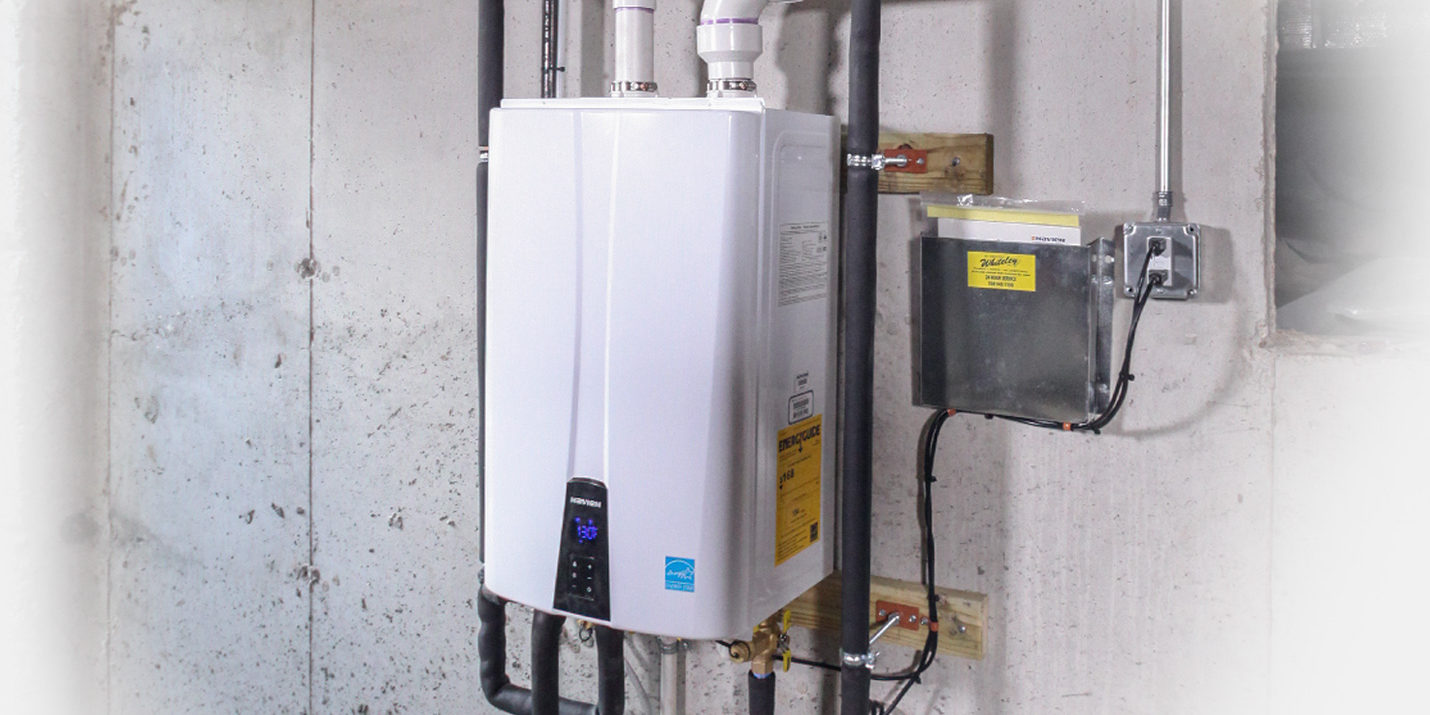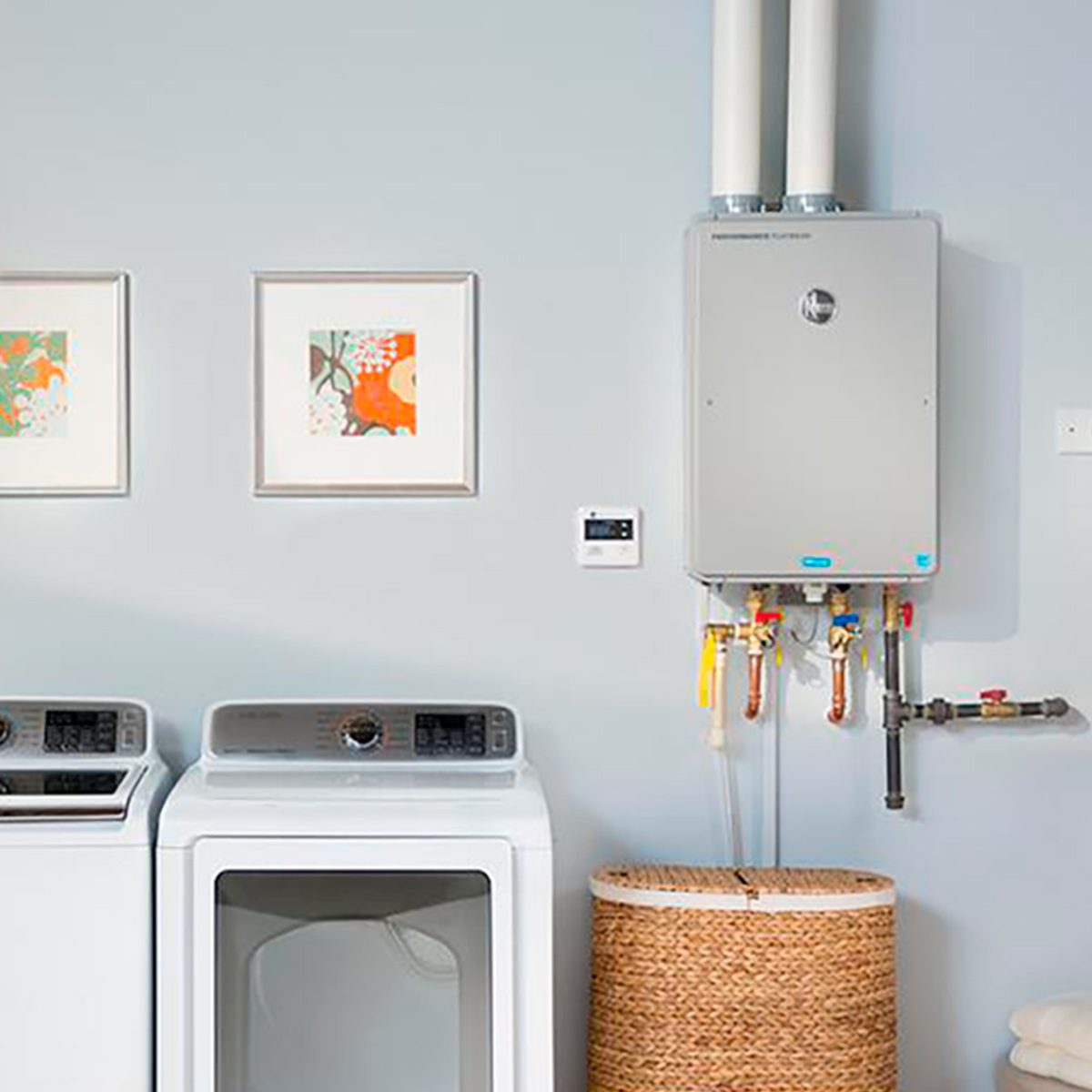Revealing The Upsides Of Smart Water Heaters
Revealing The Upsides Of Smart Water Heaters
Blog Article
Just about every person maintains their own individual opinion involving Pros and Cons of Tankless Water Heater.

In a world where comfort and efficiency reign supreme, it's not a surprise that home owners are constantly on the lookout for smarter methods to handle their home's power consumption and comfort. One development that has gradually obtained appeal is the tankless hot water heater. But exactly what makes these systems stick out from the conventional tank-based designs the majority of us matured with? Let's dive in and check out the advantages of tankless hot water heater, assisting you choose if it's time to make the switch in your house.
Intro
Picture this: you enter the shower after a long day, expecting a calming cascade of hot water, just to be greeted by icy droplets because the last individual used all of it up. Noise familiar? Traditional hot water heater store a fixed amount of warm water, indicating you go to the mercy of that container's supply. Tankless systems, on the other hand, heat water as needed. No more going out mid-shower, no more fumbling with schedules simply to make sure hot water is offered.
Recognizing Tankless Water Heaters
What Are Tankless Hot Water Heater?
Tankless hot water heater, occasionally known as on-demand or immediate water heaters, supply warm water only as it's needed. Rather than keeping gallons of pre-heated water, these systems kick right into activity the minute you turn on the tap. Water goes through a warmth exchanger, warming up in real-time, suggesting you obtain an uninterrupted flow of warm water without the demand for a large container sitting lazily by.
How Do They Differ from Conventional Systems?
Traditional heating systems hold a tank of warm water, using energy to keep that container at a consistent temperature level. Tankless systems eliminate the standing supply, reducing wasted power and the bulky impact of a big cyndrical tube. Essentially, you're updating from a "accumulation" frame of mind to a "made-to-order" strategy.
Common Kinds Of Tankless Units
Tankless hot water heater typically can be found in two ranges: gas and electrical. Gas models tend to deliver higher circulation prices, ideal for larger households, while electric models often offer smaller homes and are commonly simpler to set up. Additionally, some systems are developed for point-of-use (serving one fixture) while others can deal with the entire home's warm water demands.
Secret Advantages of Tankless Water Heaters
1. Unlimited Hot Water Supply
Ever needed to set up showers so every person obtains their fair share of warm water? With tankless, that ends up being a thing of the past. As long as the heater's circulation capacity isn't surpassed, you can take back-to-back showers without turning into a popsicle.
2. Power Efficiency and Price Cost Savings
No more heating a giant storage tank's worth of water and keeping it warm all the time. Tankless heating units decrease standby power losses, which can decrease utility costs. While the initial price might be greater, the long-lasting financial savings commonly justify the investment.
3. Space-Saving Layout
If your home is short on storage, removing the large storage tank maximizes important space. Tankless devices are portable and can commonly be installed on walls, stashed in corners, or installed in limited energy wardrobes without grabbing all of the entire space.
4. Longer Life-span
A well-kept tankless water heater can outlive its tank-based relative. Conventional tanks may last 10-15 years, while tankless versions can maintain chugging along for twenty years or more, making them a solid financial investment with time.
5. Improved Water Top Quality
Saving water in a container can often cause debris buildup or a slightly "off" taste. With tankless systems, fresh water is heated up right away, lowering the opportunities of debris buildup and possibly supplying cleaner-tasting water.
Factors to consider Prior To Switching
Though the advantages are compelling, it's a good idea to consider a few variables prior to fully committing.
Initial Financial Investment Expenses
Tankless heaters generally come with a greater in advance price tag. In between the unit itself and potential installation adjustments, the first price may offer you sticker label shock. However keep in mind to see it as a lasting investment.
Installation Requirements
Depending on your home's infrastructure, you might require added electrical capability or gas line upgrades. Guarantee you understand the installment requirements and seek advice from a specialist to avoid surprises.
Assessing Your Home's Water Use Patterns
If your household all at once uses several components with high warm water need, make sure the unit's flow price fulfills your requirements. Recognizing your use patterns aids you choose the best dimension and type of tankless heating system.
Maintenance and Care Tips
Tankless systems are fairly low maintenance, but they aren't set-it-and-forget-it appliances.
Normal Cleansing and Descaling
Hard water minerals can accumulate in the warm exchanger, impacting performance. Regular descaling (commonly suggested each year) maintains the unit going for peak performance.
Annual Specialist Assessments
A yearly checkup from a specialist makes sure small issues are caught early. They'll analyze the unit's efficiency, look for leaks, and assist keep optimal efficiency.
Ensuring Proper Ventilation
For gas designs, appropriate air flow is vital to securely expel exhaust gases. Ensure airing vent systems are clean and appropriately mounted to stop any type of possible safety hazards.
Contrasting Different Brands and Designs
Not all tankless water heaters are developed equal.
Looking Into Reliable Manufacturers
Seek respectable brands with a background of creating high quality units. A trustworthy producer frequently gives much better consumer support and longer guarantees.
Reading Evaluations and Customer Feedback
Individual reviews and responses from neighbors or close friends who have gone tankless can use valuable understandings. Sometimes, real-life experiences can be extra informing than marketing brochures.
Installment: Do It Yourself or Professional?
While some home owners delight in tackling projects themselves, tankless installment could not be the best time to break out the toolbox.
Advantages and disadvantages of Do It Yourself Installment
A DIY set up might save cash, yet it features risks. Wrong setup can result in inefficiency or safety and security worries. If you're handy and have experience, it might be viable-- however wage caution.
When to Call a Specialist Plumber
For the majority of, calling a pro ensures whatever's done correctly. An expert plumber comprehends neighborhood codes, sizing requirements, and venting specifications, reducing the danger of incidents.
Making best use of Efficiency
You have actually invested in a tankless device-- currently optimize its performance.
Ideal Temperature Level Settings
Most people set their devices in between 120-140 F. Readjusting the temperature level can enhance comfort and cost savings. Experiment to locate a pleasant spot that does not throw away power.
Pairing with Low-Flow Fixtures
Intend to stretch your device's capabilities? Think about installing low-flow showerheads and taps. They reduce water use, enabling your tankless system to provide a constant stream of warm water without straining.
Ecological Effect
Tankless water heaters line up with greener living objectives.
Minimized Carbon Footprint
By using less energy and only heating water as required, tankless systems can decrease your home's carbon impact, reducing your ecological impact.
Saving Natural Resources
Less power intake and less lost warm water translate into less natural resources being utilized, an ecological win-win.
That Profits Most from Tankless Heating systems?
The elegance of tankless heaters is that they can suit a variety of homes.
Large Households vs. Solitary Owners
Large families could enjoy the countless warm water supply, while single residents appreciate the energy savings from not heating a whole container for simply someone's morning shower.
House Owners with Restricted Area
If your home is short on square video footage, losing the cumbersome container liberates area for various other basics-- or maybe just a lot more elbow room.
Eco-Conscious Customers
Going tankless aligns with eco-friendly values, guaranteeing you're not wasting power or sources.
Future Trends in Tankless Hot Water Heater
The globe of home appliances is ever-evolving, and tankless water heaters are no exemption.
Smart Home Assimilation
Envision adjusting your water heater's temperature by means of an application or obtaining upkeep alerts on your phone. As smart home tech breakthroughs, we'll see even more connection and benefit.
Improvements in Modern technology
R&D is constantly improving heat exchangers, making devices much more efficient and resilient. Future versions could be even quieter, more portable, and far better fit for varying climates.
Verdict
Choosing a tankless water heater is greater than just upgrading your home's hot water system; it's purchasing long-lasting comfort, energy performance, and a greener way of living. By considering your house's water usage, bearing in mind installment needs, and devoting to regular upkeep, you can appreciate a steady stream of warm water without the baggage of a large storage tank. As technology advances, you can expect even smarter, more effective tankless options that not only make your life less complicated however additionally benefit the earth.
Pros and Cons of Tankless Water Heaters
Tankless Water Heater Pros
Saves Energy: Simply put, you re spending less energy to create hot water, so your total carbon footprint goes down, not to mention your bills. Lasts Longer Than Storage Tanks: Storage tank units need to be replaced every 15 years or so. But tankless units? They can last for 30 years before they give out on you. Constant Hot Water: Need to take a shower and don t want the water running cold? Awesome it won t. The water will stay hot the entire time because it creates hot water on demand. Saves You Money: Less water usage equals less money. Beyond that, you re not paying to keep water hot 24/7. Those savings add up quickly. Better for the Environment: Less water waste is better for everyone. It saves you money, but it s also environmentally conscious at the same time. Tankless Water Heater Cons
It Can Take a Minute: Depending on your specific unit and its placement, it can take anywhere from 10 seconds to 2 minutes to fully heat up. Because there s no storage tank, it heats water as you need it. Upfront Purchase Price: While we talked about their longevity, there s sticker shock when you look at brand-new tankless units to install. It pays for itself, but it s still a big chunk of change at first. Has its Limits: If you run multiple appliances at once, such as the dishwasher, washing machine, and maybe you take a shower at the same time, there might not be enough hot water. https://www.airsouthnow.com/blog/water-heater-service/pros-and-cons-of-tankless-water-heaters/

As an avid reader on 5 Benefits of Tankless Water Heaters, I was thinking sharing that excerpt was essential. Enjoyed reading our entry? Please quickly share it. Let someone else find it. We value reading our article about Six Benefits of a Tankless Hot Water Heater.
Click Here Report this page